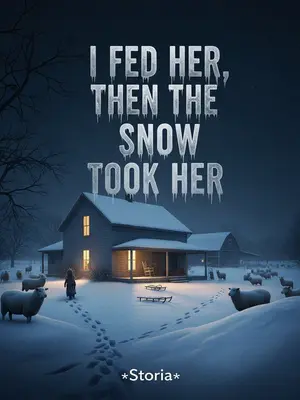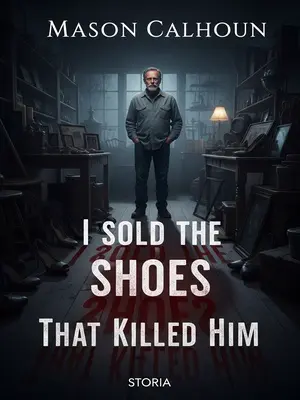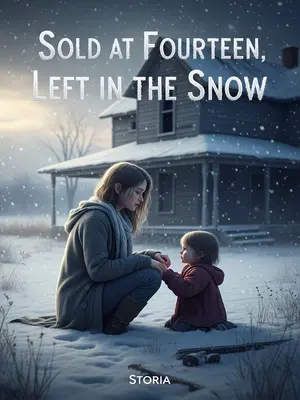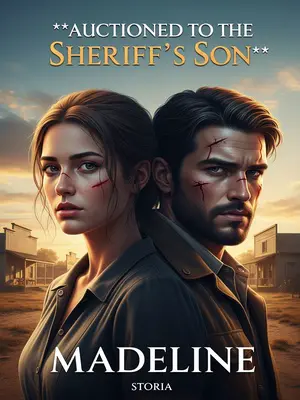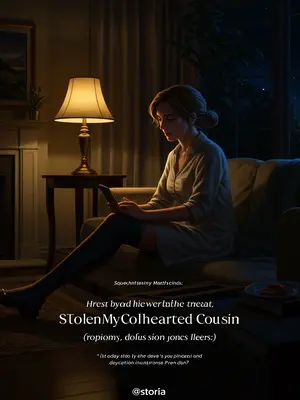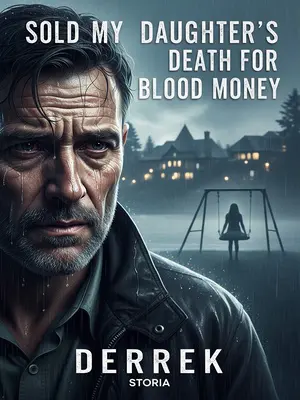Chapter 1: Auctioned to the Wolf
I used to be the Whitmore family's go-to girl—loyal to a fault, always ready to handle whatever needed handling. I even took a bullet for Harrison Whitmore, heir to the Whitmore fortune. He once promised that when he finally got control of the family money, he’d make me his official partner. Honestly, I just wanted him—title or not.
Back then, the Whitmore estate felt like the safest place on earth to me: all red-brick grandeur and oak-paneled halls, the kind of place where the outside world felt a million miles away. Harrison would slip me notes out in the garden, or sneak me into his father’s study for midnight snacks. I never wanted for anything—except maybe a little more time with him.
For a second my mind blanked, and then I ran.
I still remember the smell of smoke tangled in my hair, the wild, animal panic pounding in my chest as I tore down the gravel drive under cover of night. I didn’t look back. Not even when the sirens started up, distant but getting closer. All I could think about was the tiny life inside me, and how nothing—not even the Whitmore name—could keep us safe anymore.
The next time we met, his eyes were bloodshot as he grabbed my chin, hard. “Go on, run! Why aren’t you running now?”
His voice was raw—almost desperate. His fingers actually trembled against my jaw. The room was thick with shadows, the kind that seem to swallow your words whole. I just stared at him. There was nothing left to say. For a second, I thought he might cry, but Harrison Whitmore never cried. Not even for me.
I used to be the favorite in the Langley house. My mother was a famous beauty from Santa Fe—my father’s ninth wife, and his favorite. She had me when my father was already fifty. I was his youngest daughter.
Our house was a rambling Spanish-style mansion on the edge of the desert—sun-bleached stucco, dusty rose gardens. I remember the hot wind rattling the windows, the sharp scent of sage, the way the sunlight baked the flagstones. My mother filled the rooms with laughter and music. She’d play piano late into the night, and I’d drift off to her soft humming floating down the hallway. My father, always busy with business or buried in books, still found time to tuck me in and tell stories from his New Mexico childhood. I was the baby, the miracle late in life, and everyone doted on me.
After my mother died, my father doted on me even more, almost like he was trying to give me everything he had left. But my good days only lasted until I was fourteen—just like that, it was over.
After her funeral, the house felt hollow—her perfume clung to the halls, but the music was gone. My father grew quieter, more withdrawn. He started giving me gifts for no reason: antique jewelry, rare books, even a little white pony for my birthday. I clung to those things, not realizing how quickly it would all slip away.
That year, my father teamed up with Harrison Whitmore and tried to take over the family trust. It blew up in their faces. The men in my family got arrested, and the women were sent to work in a notorious nightclub. My father landed in jail.
It all happened so fast—one day we were hosting garden parties for the city’s elite, the next the police were banging on our door. I remember the flash of cameras, neighbors peeking through curtains, shame burning hot in my cheeks as we were herded into the back of a squad car. The Langley name, once whispered with envy, became a punchline overnight.
My eldest brother’s granddaughter was a year older than me. On her first night in the club, she slipped away when no one was watching and leapt from the third-story window. She died instantly, her head smashed open. I still can’t get that image out of my mind.
I’ll never forget the sound—people screaming, glass shattering, and then nothing but a horrible, heavy silence. The club manager made us scrub the blood off the sidewalk ourselves. After that, no one talked about escape. The fear in that place was thick enough to choke you.
Someone brought me a message: my father wanted me to end it. Family honor, he said.
They slipped me a folded note, the paper already soft from too many hands. The words were neat, my father’s handwriting instantly familiar. I read it over and over, my hands shaking. For a moment, I actually thought about it—maybe it would be easier. But something deep inside me just wouldn’t give in.
I couldn’t do it.
That night, I lay awake, listening to the city outside—the distant hum of traffic, laughter drifting up from the club’s main floor. I thought about my mother, the way she used to tuck my hair behind my ear and say, “You’re strong, honey.” I decided I’d survive, even if it meant losing everything else.
The club’s manager barked at us, “Don’t think you’re still some high-class ladies, above it all. Here, you follow our rules. If you refuse to serve clients, you’ll get beat until you do!”
She was a hard woman—sharp edges, bright red lipstick, her voice slicing through the smoky halls. The other girls flinched when she walked by. I learned fast to keep my head down, to nod and smile when spoken to. There was no room for pride here.
Plenty of girls got beaten, but I didn’t. I kept my head down—did whatever they told me. No questions, no attitude.
Some nights, I’d hear muffled cries from the next room, or see bruises blooming on the other girls’ arms and faces. I kept my hands busy—folding napkins, polishing glasses—anything to avoid attention. If they said jump, I asked how high. That’s how you survived.
Being a hostess was a skill—a whole world of tricks to learn. Since I could read and write and didn’t cause trouble, the manager said she’d give me special training, grooming me to be a star performer in the city, worth a fortune for one night. I wasn’t sure if that was a blessing or a curse.
She called me into her office—a cramped space crammed with perfume bottles and cheap gold trophies. She eyed me up and down, scribbling in her little black book. “You’re a quick study,” she said. “You could be worth more than any of these girls if you play your cards right.”
She looked me over with bright, calculating eyes, touched my face, checked my teeth, then my figure. Finally, she nodded. “You’ve got a good foundation. You’ll definitely succeed.”
Her hands were cold as she tilted my chin, inspecting every inch of me like I was a show pony. “You’ve got the look,” she murmured, almost to herself. “Men will pay through the nose for you.”
She kept bringing me food, saying I needed to put on some weight—thin girls didn’t feel as good, apparently. No one wanted a bag of bones.
The kitchen staff would sneak me extra slices of cheesecake or fried chicken late at night. I ate it all, even when my stomach protested. The manager would pinch my waist and nod approvingly. “No one wants a bag of bones,” she’d say, giving me a wink.
The hardest part of club life was the endless training—no rest, always something new to learn. Mornings were for music and dance, to impress the cultured types. Afternoons meant learning the art of seduction from the top hostesses and a few managers. At night, I’d memorize poetry or watch other girls entertain clients in the back rooms. It never ended.
It was like a crash course in survival. I learned to fake laughter, pour whiskey without spilling, flirt just enough but never too much. The older girls showed me how to walk, how to make a man feel like he was the only one in the room. I wrote everything down in a little notebook I kept hidden under my pillow.
Honestly, seeing it all up close terrified me. So many clients were fat and greasy—just looking at them made me sick. Still, the other girls had to act like they were enjoying it. I didn’t know how they did it.
Sometimes, I’d watch from behind a curtain, my stomach twisting as the men pawed at the girls, their breath hot and sour. But the hostesses kept smiling, their eyes glazed over like dolls. I promised myself I’d never let anyone see me break.
After six months of training and passing every test, it was finally time—I was going to be auctioned off for my first night. The club was packed. I wore almost nothing—a thin veil, played music, danced—trying to drive the price as high as possible.
The room was thick with cigar smoke, the low hum of conversation buzzing in my ears. I could feel dozens of eyes crawling over me as I stepped onto the stage, my heart pounding so loud I thought everyone could hear it. The music started—slow, sultry. I moved the way they’d taught me: graceful, controlled, every step meant to drive the bidding higher.
As I spun, I’d think back to my days at the Langley estate. Back then, I was the one watching the dancers.
I remembered sitting on velvet cushions, eating sugared almonds while the grown-ups laughed and clapped. I never thought I’d be the one on display. But here I was, wishing for nothing more than to disappear.
The music ended, a breeze blew, and my veil slipped off. The crowd gasped. I left the stage slowly, waiting for the bidding to start, my skin prickling with shame.
My cheeks burned as I walked off, feeling more naked than I ever had before. Still, I kept my head high—just like my mother would’ve wanted. Behind the curtain, the manager squeezed my hand. “You did good, honey,” she whispered. “Now let’s see what you’re worth.”
Nervously, I listened as the prices climbed higher and higher. It went on forever. Clearly, the manager’s training had paid off—I was worth more than I’d ever imagined.
The numbers blurred together, my mind drifting far away. I tried to think about anything else—old family vacations, the smell of fresh bread in our kitchen, the way sunlight used to pour through my bedroom window. But I couldn’t drown out the sound of men shouting over me.
If my father knew I hadn’t taken my own life, he’d probably want to strangle me. He’d think I’d disgraced the family, no doubt.
I pictured him pacing in his cell, jaw clenched, eyes dark with disappointment. It stung, but I shoved the thought aside. I’d made my choice. I wasn’t going to die for anyone’s honor but my own.
My room was decked out like a bridal suite, and I wore a red dress. But unlike a real bride’s gown, this one was sheer, barely there—enough to make anyone blush.
The bed was covered in rose petals, the air thick with cheap perfume. I caught my reflection in the mirror—flushed cheeks, trembling hands, eyes too old for my face. The dress clung to me like a second skin, the color almost scandalous in the soft lamplight.
The manager burst in, beaming. “My good girl, you sold for fifty thousand dollars! You really are my lucky star!”
She handed me a glass of champagne and squeezed my shoulder, her nails digging in just a little too hard. “Smile, sweetheart,” she said. “Tonight’s your big break.”
She hurriedly added, “Be sure to serve this gentleman well!”
Her tone snapped sharp, urgent. “Don’t screw this up. He’s not like the others.”
Through the red veil, I saw the man who’d bought me. At least he wasn’t one of those fat, greasy guys. He was tall, broad-shouldered, narrow-waisted, and honestly, strikingly handsome. But he gave off this dangerous vibe, his face cold—he didn’t look like he was here for fun.
He moved with the kind of confidence that made everyone else shrink back. His eyes swept over the room, missing nothing. I felt a chill snake down my spine, but I forced myself to stand tall, chin up.
I recognized him…
The day my family was arrested, in the middle of all that chaos, he sat in the back of a black SUV, just watching us coldly. He was the patriarch’s seventeenth son, Julian Whitmore. At fourteen he’d gone overseas; he’d only just returned and immediately took charge—he executed the rebellious Harrison and his followers. My father, being a renowned scholar, was spared but kept in prison.
Julian Whitmore was a legend in our world—rumors swirled about his time overseas, the things he’d done, the people he’d left behind. Seeing him in person was like coming face-to-face with a ghost you’d only ever heard about in bedtime stories. That day, he didn’t flinch as the police dragged us away. He just watched, eyes flat and unreadable.
I remembered that day—an aunt tried to escape. He was outside, drew his gun so fast no one could react, and shot her right through the chest. His expression never changed—just stared at us, cold as ice.
The memory flashed behind my eyes: the sharp crack of the gun, my aunt collapsing, blood pooling at her feet. Julian’s face never changed. He holstered his weapon and turned away, like it was just another chore.
I didn’t dare play any wedding-night games. The manager had come up with these little ideas to entertain clients, but with him, I just knew—if I made him wait, he might kill me.
My hands shook as I poured the wine, careful not to spill a drop. I didn’t dare meet his eyes. I’d seen what happened to people who crossed him, and I wasn’t eager to join them.
I hurried over, poured his wine. He glanced at the glass but didn’t drink—probably worried about poison—so I drank it myself.
The wine burned going down, but I forced a smile. “See?” I said softly. “Perfectly safe.”
He stood up. “Take off your dress.”
His voice was low, almost bored, but there was no mistaking the command. My fingers fumbled with the buttons, my cheeks burning. I tried not to cry.
He was terrifyingly strong. With just a casual grip, bruises bloomed across my skin. He tossed me around the bed like he wanted to break me.
The pain was sharp, but I bit my lip and stayed silent. I’d learned long ago that tears only made things worse. I focused on the ceiling, counting the cracks in the plaster until it was over.
Even with all my training, I felt half-dead by the end.
When it was done, I just lay there gasping, every muscle aching. The sheets were twisted around me, damp with sweat—and something else. I closed my eyes and waited for the world to stop spinning.
The manager congratulated me, saying I’d gotten lucky and caught the eye of an important man—he’d bought my freedom.
She was almost giddy, waving a wad of cash in my face. “You’ve hit the jackpot, darling! You’ll never have to work another night in this dump.”
I looked at her, scared out of my mind. I’d rather stay in the club than be bought by Julian Whitmore. If I followed him, I’d probably end up dead.
The thought of leaving with him made my blood run cold. I tried to think of a way out, but the doors were locked, and the guards watched me like hawks.
My plan had always been to master my skills, find a decent client—ideally the first one—and beg him to buy my freedom. The men who came to Scarlet Velvet Lounge were all rich or powerful. If the manager got her money, she’d have to let me go. Once I was out of the club, away from those eagle-eyed guards, my chances of escape would be way better.
I’d heard stories of girls who made it out—married up, started over in another city, changed their names and vanished. I clung to that hope, even as the odds stacked up against me.
But last night, I hadn’t asked Julian to buy my freedom. Even though the first night sells for the most, his presence was so intimidating I couldn’t say a word, let alone ask to go home with him.
He hadn’t said much, but every word was a warning. I kept my head down and did as I was told, hoping he’d forget about me by morning.
But now, he’d bought me.
The manager handed me a small suitcase and a coat. “Your new life starts now,” she said, almost kindly. I wanted to run, but my feet just wouldn’t move.


